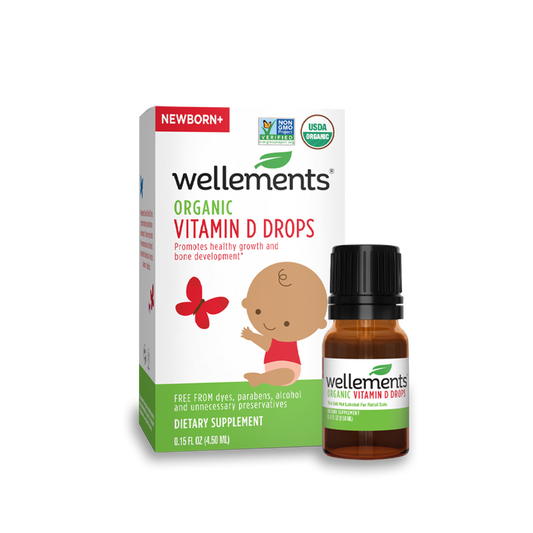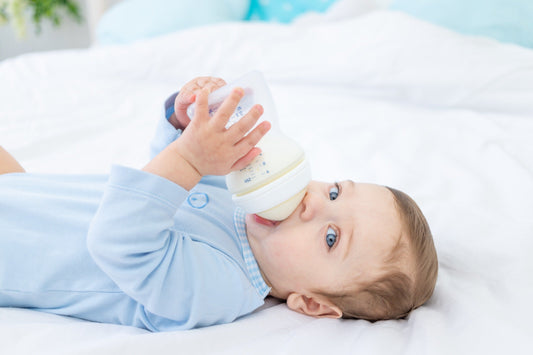Vitamin D Eczema: Is There a Connection?
| updated:Share

A new study out of the University of Southampton suggests that taking a vitamin D supplement during pregnancy can significantly reduce the risks of atopic eczema in babies up to one year. The condition is common and treatable, but it is often itchy and irritating, causing discomfort for your little one. According to the new research, taking 1,000 IUs of the vitamin daily from 14 weeks to delivery created a lower risk of eczema in newborns and infants. While the effects seem to wear off after one year, the findings are promising for expectant mothers and their children.
What Is Eczema?
Atopic eczema or dermatitis is a condition that usually affects small children but can occur at any age. The condition causes inflamed, dry, and itchy skin and tends to be chronic or long-lasting. Also, there is a correlation between atopic dermatitis and asthma, food allergies, and hay fever risks.
If your child has the condition, it is treatable and not contagious. A little one with eczema does not need to be separated from other children or adults. While the appearance of inflamed and flaky skin may be alarming to new parents if it is atopic dermatitis, it is nothing to fear; however, you should consult your little one's pediatrician about treatment options.

Link Between Eczema & Vitamin D
Vitamin D has immune-regulating properties, which research suggests contributes to its ability to limit the effects of eczema. A systemic review of studies in 2018 found that lower levels of vitamin D correlated with the severity of eczema. Also, the review concluded that supplementation could improve symptoms in most cases. Older studies support the more recent claims.
However, while vitamin D supplements can help treat eczema symptoms, staying within medically advisable limits is crucial. You can help your little one get enough vitamin D by focusing on vitamin-rich foods and providing child-focused vitamin supplements, such as Wellements Organic Vitamin D Drops.
4.2 /
5.0
(87)
87
total reviews
Vitamin D Drops
Sale price
$11.99
Benefits of Taking Vitamin D During Pregnancy
Besides the reduced risks of atopic dermatitis, taking vitamin D during pregnancy supports the health and development of the mother and baby. For mom, the nutrient supports immune strength and the health of bones, teeth, and muscles. It also plays a vital role in calcium and phosphorus absorption.
For the developing baby, vitamin D not only aids in bone development but is also crucial to eye and skin health. The essential nutrient also reduces the risks of preterm births or infections.

Different Ways To Get Vitamin D
Only a few ways exist for getting adequate vitamin D. You can spend time in the sun, which is the most efficient and effective method for sustaining appropriate vitamin D levels. Depending on your needs, you can also take a daily supplement of up to 4,000 IUs. Finally, you can include vitamin-rich foods in your diet.
Food sources are not the most effective way to get vitamin D, but some are richer than others. The best foods include:
- Eggs
- Dairy products
- Fatty fish
- Red meat
- Fortified foods
How To Test for Vitamin D Deficiency
The primary symptoms of vitamin D deficiency include fatigue, bone aches, hair loss, loss of appetite, muscle weakness, depression, and nausea. Unfortunately, many of these symptoms also correlate to pregnancy. If you want to know if you have a deficiency, contact your doctor and schedule a blood test.
Regardless of the results, every pregnant and nursing woman must take additional vitamin D. Your doctor can help you determine the correct dosage.
Atopic eczema is a common condition in newborns and infants. It is not contagious and is treatable. Expectant mothers can reduce the risk of eczema in the first year of a baby's life by taking a vitamin D supplement during pregnancy, at least 1,000 IUs daily.
Sources:
https://www.thebump.com/news/vitamin-d-eczema
https://pubmed.ncbi.nlm.nih.gov/30284328/
https://www.mayoclinic.org/diseases-conditions/atopic-dermatitis-eczema/symptoms-causes/syc-20353273
https://health.unl.edu/9-vitamin-d-deficiency-symptoms-and-10-high-vitamin-d-foods



